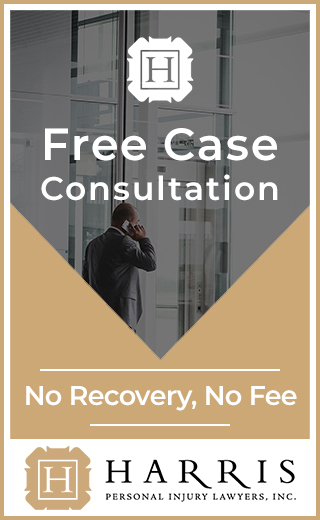Azusa Bicycle Accident Attorneys
Azusa Bicycle Accident Attorneys
When a driver collides with a cyclist, the rider rarely comes out on top. With just a helmet for protection, cyclists are at the mercy of crash forces in an accident. Victims are often killed, while those who do survive tend to suffer catastrophic injuries and experience life-altering health complications. If you or someone close to you was hurt while out riding, reach out to our Azusa bicycle accident attorneys for assistance. Our phone line is open 24 hours a day, seven days a week. Dial 1-800-GO-HARRIS to find out more about our free initial consultations.
Types of Damages in a Bicycle Accident Claim
There are two distinct categories of damages that might be available to you in a personal injury claim: compensatory and punitive. Compensatory damages encompass your past and future economic and non-economic losses. Punitive damages may be awarded to punish the defendant and deter others from engaging in similar misconduct. Let’s explore some of the compensatory damages that might be available to you if you were in injured in a bicycle accident:
- Loss of Life Enjoyment: If your injuries left you unable to engage in certain activities that brought you joy before the accident, such as quality time with your children, physical activity, or your favorite hobbies, you might be able to recover compensation for loss of enjoyment.
- Pain and Suffering: Even minor injuries can lead to considerable pain. As such, personal injury victims have a right to pursue non-economic damages for the mental suffering, physical pain, and humiliation caused by the defendant’s negligence.
- Medical Treatment: The potential recovery in your bicycle accident claim can account for not just the medical expenses you’ve incurred thus far, but also the additional care you will likely require in the future as a direct result of your injuries. To prove such damages, your attorney may use evidence such as receipts and invoices for medical care, X-rays and other diagnostic imaging, your personal injury journal, prescription drug records, pictures of your injuries, and medical expert witness deposition or testimony.
- Property Repairs: A high-quality bicycle can often cost as much as a mid-range car. As such, if your bike was damaged in the accident, you may have spent thousands of dollars to repair or replace it. Depending on the circumstances surrounding the accident, these costs could be factored into the eventual settlement.
- Lost Income: If you were unable to return to work due to your injuries, you may have missed days, weeks, or even months of wages. Fortunately, these losses—both past earnings and future—could potentially be included as part of your claim.
- Lost Earning Capacity: Disabilities and permanent injuries can often prevent accident victims from returning to the same field of work they were in prior to the accident. Unable to earn a living, this can put them on a crash course towards financial turmoil. Our legal team can assess your claim to determine whether you can pursue damages for lost earning capacity, and can consult with vocational and financial experts if necessary to determine the value of such damages.
Can I Use Social Media after an Accident?
If you suffered a serious injury in a bicycle accident, you may want to turn to social media for emotional support. It’s likely that those in your circles can offer encouragement and guidance during the dark days ahead, which can be invaluable as you learn to cope with the harsh realities of your condition. However, before you post on Twitter, Facebook, or Instagram, you need to think about what the future may hold. Should you plan to take legal action, your posts could be turned against you to dispute aspects of your claim. As such, we often advise our clients to disable their social media accounts until the claims process has run its course. If this isn’t possible for you, the steps listed here could help protect your claim next time you go online:
- Use Stricter Privacy Settings: Most social media sites give you the option to tweak your privacy settings to control who can—and can’t—view posts that you publish on your feed. It’s possible that your account is open to the public, giving the insurer and other opposing parties free rein to start digging through your post history. As such, you will want to dial up your privacy settings to restrict access to only those in your circles. Keep in mind that if your case goes into litigation, an opposing party may be able to file a discovery request to view any posts you’ve published, so it’s best to avoid posting online altogether.
- Filter Your Connection Requests: Never accept friends or followers that you don’t recognize. It’s not unheard of for opposing parties to send connection requests in a bid to gain access to “private” social media profiles.
- Avoid Discussing the Accident: Posts about the bicycle accident, your injuries, or your personal injury claim could be used to challenge your case. In addition to these topics, you should also avoid discussing your health, work life, social life, or expenses.
- Stop the “Check Ins”: Sites such as Facebook give you the option to “check in” when you arrive at a new location. While it’s an easy way to let friends and family know what is going on in your life, these broadcasts could sink your claim. Ultimately, “check ins” make it easy for the claims adjuster to keep tabs on your social life. If you’re seeking compensation for intangible losses such as loss of life enjoyment or pain and suffering, the insurer may be able to use your “check ins” to dispute your damages.
Connect With a Bicycle Accident Attorney in Azusa Today
Whether you were hurt by a distracted motorist, reckless bus driver, or speeding biker, the attorneys at HPIL are here to help. Connect with us at 1-800-GO-HARRIS or use our online form HERE to set up a free case evaluation.

